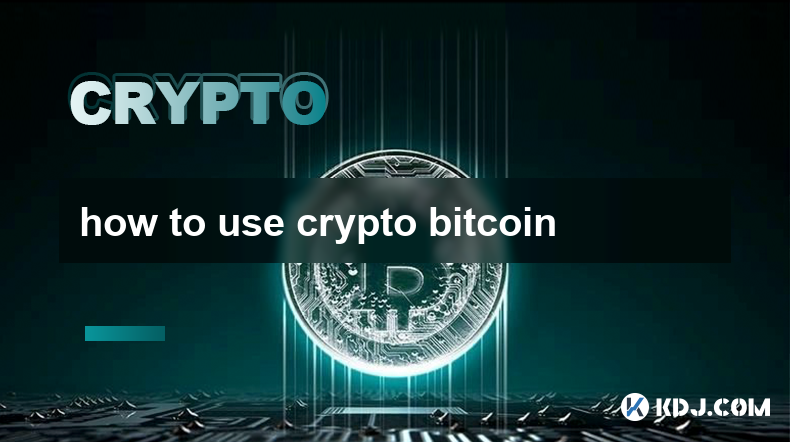-
 Bitcoin
Bitcoin $102,881.1623
-0.60% -
 Ethereum
Ethereum $2,292.8040
-5.48% -
 Tether USDt
Tether USDt $1.0004
0.02% -
 XRP
XRP $2.0869
-2.02% -
 BNB
BNB $634.6039
-1.35% -
 Solana
Solana $136.1527
-3.00% -
 USDC
USDC $1.0000
0.01% -
 TRON
TRON $0.2728
-0.45% -
 Dogecoin
Dogecoin $0.1572
-3.70% -
 Cardano
Cardano $0.5567
-5.07% -
 Hyperliquid
Hyperliquid $34.3100
-1.20% -
 Bitcoin Cash
Bitcoin Cash $462.5691
-2.33% -
 Sui
Sui $2.5907
-5.21% -
 UNUS SED LEO
UNUS SED LEO $8.9752
1.13% -
 Chainlink
Chainlink $12.0549
-4.93% -
 Stellar
Stellar $0.2381
-2.36% -
 Avalanche
Avalanche $16.9613
-3.47% -
 Toncoin
Toncoin $2.8682
-2.36% -
 Shiba Inu
Shiba Inu $0.0...01095
-3.70% -
 Litecoin
Litecoin $81.8871
-2.43% -
 Hedera
Hedera $0.1377
-5.36% -
 Monero
Monero $310.8640
-0.68% -
 Ethena USDe
Ethena USDe $1.0007
0.03% -
 Dai
Dai $1.0001
0.03% -
 Polkadot
Polkadot $3.3103
-5.19% -
 Bitget Token
Bitget Token $4.2168
-1.95% -
 Uniswap
Uniswap $6.4643
-8.14% -
 Pepe
Pepe $0.0...09329
-7.42% -
 Pi
Pi $0.5111
-5.23% -
 Aave
Aave $235.2340
-5.77%
how to use crypto bitcoin
To acquire Bitcoin, one can either use dedicated cryptocurrency exchanges or purchase it directly within certain cryptocurrency wallets, making the process more accessible and convenient.
Jan 29, 2025 at 11:25 pm

Key Points:
- Understanding Cryptocurrencies and Blockchain
- Setting Up a Crypto Wallet
- Acquiring Bitcoin Through Exchanges or Wallets
- Transferring and Storing Bitcoin Securely
- Using Bitcoin for Transactions
Understanding Cryptocurrencies and Blockchain
Cryptocurrencies, such as Bitcoin, operate on decentralized networks known as blockchains. Blockchains are distributed ledgers that record transactions in blocks, which are linked together in a secure and tamper-proof manner. Each block contains a cryptographic hash of the previous block, ensuring the integrity of the blockchain.
Setting Up a Crypto Wallet
A crypto wallet is essential for storing and managing cryptocurrencies. There are various types of wallets available, including hardware wallets, software wallets, and mobile wallets. Each type offers different levels of security and convenience.
- Hardware Wallets: Offer the highest level of security by storing private keys offline in a tamper-proof device. Examples include Ledger Nano X and Trezor Model T.
- Software Wallets: Run on computers or mobile devices and provide access to cryptocurrencies through software interfaces. Popular software wallets include MetaMask, Coinbase Wallet, and Exodus.
- Mobile Wallets: Specifically designed for mobile devices and offer convenience for on-the-go transactions. Examples include Trust Wallet, Guarda Wallet, and Binance Chain Wallet.
Acquiring Bitcoin Through Exchanges or Wallets
- Cryptocurrency Exchanges: Allow buying and selling of Bitcoin using fiat currencies or other cryptocurrencies. Reputable exchanges such as Binance, Coinbase, and Kraken offer a wide range of cryptocurrencies and payment options.
- Cryptocurrency Wallets: Some wallets, like Coinbase Wallet and Exodus, provide integrated exchange services within their platforms. This simplifies the process of purchasing Bitcoin directly within the wallet.
Transferring and Storing Bitcoin Securely
- Choosing a Suitable Wallet: Different wallets offer varying levels of security features and storage options. Consider the amount of Bitcoin to be stored, the desired level of security, and the frequency of transactions when selecting a wallet.
- Securing Private Keys: Private keys grant access to Bitcoin and should be kept confidential. Store them securely and consider using a passphrase for added protection.
- Multiple Wallets for Different Purposes: Spread Bitcoin across multiple wallets based on intended usage. Keep small amounts in a mobile wallet for quick transactions, while storing larger amounts in a hardware wallet for long-term storage.
Using Bitcoin for Transactions
- Online Purchases: Many merchants and online retailers now accept Bitcoin as a payment method. Check with the vendor to confirm availability.
- Peer-to-Peer Transactions: Send Bitcoin directly to another person's wallet address, either through a wallet or third-party services.
- Exchange-Based Transactions: Use cryptocurrency exchanges as intermediaries to buy and sell Bitcoin, then transfer the proceeds to a preferred wallet.
FAQs:
- What is the difference between Bitcoin and blockchain?
Bitcoin is a specific cryptocurrency that operates on the blockchain, a decentralized distributed ledger technology.
- Is crypto secure?
Cryptocurrency security relies on the specific wallet used and the practices of its users. Hardware wallets offer the highest level of security, while software and mobile wallets provide varying levels of protection.
- How can I avoid crypto scams?
Be cautious of emails or messages claiming to be from official cryptocurrency companies. Legitimate entities will not ask for personal information or private keys. Thoroughly research investments and avoid engaging with unknown or suspicious individuals or platforms.
- What is a cryptocurrency exchange?
A cryptocurrency exchange is a platform that facilitates the buying and selling of cryptocurrencies using fiat currencies or other cryptocurrencies.
- What is a Bitcoin hardware wallet?
A Bitcoin hardware wallet is a physical device that stores private keys offline, providing the highest level of security for cryptocurrencies.
Disclaimer:info@kdj.com
The information provided is not trading advice. kdj.com does not assume any responsibility for any investments made based on the information provided in this article. Cryptocurrencies are highly volatile and it is highly recommended that you invest with caution after thorough research!
If you believe that the content used on this website infringes your copyright, please contact us immediately (info@kdj.com) and we will delete it promptly.
- Bitcoin Dominance, Mideast Conflict, and Altcoin Pressure: A Crypto Conundrum
- 2025-06-22 18:25:12
- Bitcoin, Stocks, and Gold: Echoes of the Past, Glimpses of the Future
- 2025-06-22 18:25:12
- Avalanche vs. Ruvi AI: Is a Six-Figure Fortune More Likely?
- 2025-06-22 18:45:12
- Stock Market News, Weekly Review: June 2025 - What You Need to Know
- 2025-06-22 18:45:12
- NFT Sales Crossroads: Polygon's Rise, Ethereum's Challenge
- 2025-06-22 19:05:12
- Meta Whale CES Token: A Web3 Launch Revolutionizing the Metaverse
- 2025-06-22 19:05:12
Related knowledge

What is Ethereum’s Slashing mechanism and how to punish malicious behavior?
Feb 20,2025 at 03:08am
Key PointsOverview of slashingDifferent types of slashing in EthereumIncentives and consequences of slashingIdentifying and reporting slashed validatorsOngoing discussions and potential improvementsEthereum's Slashing Mechanism: Punishing Malicious BehaviorEthereum's slashing mechanism is an essential tool for ensuring network security and punishing mal...

What is the verifier node of Ethereum and how to become a verifier?
Feb 19,2025 at 06:00pm
The Verifier Node of Ethereum: A Comprehensive GuideKey Points:What is a Verifier Node?How to Become a Verifier NodeResponsibilities and Rewards of a Verifier NodeMinimum Requirements for Becoming a Verifier NodePotential Difficulties in Running a Verifier Node1. What is a Verifier Node?A Verifier Node is an independent entity on the Ethereum network th...

What is Ethereum’s staking, and how to participate and earn money?
Feb 19,2025 at 04:37pm
Key Points:Understanding Ethereum's Staking MechanismSteps to Participate in StakingBenefits and Rewards of StakingSecurity and Risk ConsiderationsTechnical Requirements and Hardware OptionsPotential Challenges and Troubleshooting TipsFAQs on Ethereum StakingWhat is Ethereum's Staking?Proof-of-Stake (PoS) is a consensus mechanism used in blockchain netw...

What is Ethereum’s DAO (Decentralized Autonomous Organization) and how does it work?
Feb 20,2025 at 03:12am
Key PointsDefinition and Structure of a DAOGovernance and Decision-Making in DAOsBenefits and Use Cases of DAOsChallenges and Limitations of DAOsWhat is Ethereum's DAO (Decentralized Autonomous Organization) and How Does It Work?Definition and Structure of a DAOA Decentralized Autonomous Organization (DAO) is an innovative governance and management fram...

What is Ethereum's multi-signature wallet and how to improve security?
Feb 20,2025 at 02:18pm
Key Points:Understanding the Concept of a Multi-Signature WalletBenefits and Drawbacks of Multisig WalletsRequirements for Setting Up a Multisig WalletStep-by-Step Guide to Generating a Multisig WalletImplementing Strategies for Enhanced Security1. Understanding the Concept of a Multi-Signature WalletA multi-signature (multisig) wallet in the Ethereum e...

What is Ethereum's oracle and how to provide data for smart contracts?
Feb 21,2025 at 01:30am
Key Points:Understanding the concept of oracles in EthereumExploring different types of oraclesDetailed guide on how to provide data for smart contractsAddressing potential challenges and considerationsWhat is Ethereum's Oracle?Oracles are crucial components in the Ethereum ecosystem, enabling smart contracts to access real-world data and off-chain even...

What is Ethereum’s Slashing mechanism and how to punish malicious behavior?
Feb 20,2025 at 03:08am
Key PointsOverview of slashingDifferent types of slashing in EthereumIncentives and consequences of slashingIdentifying and reporting slashed validatorsOngoing discussions and potential improvementsEthereum's Slashing Mechanism: Punishing Malicious BehaviorEthereum's slashing mechanism is an essential tool for ensuring network security and punishing mal...

What is the verifier node of Ethereum and how to become a verifier?
Feb 19,2025 at 06:00pm
The Verifier Node of Ethereum: A Comprehensive GuideKey Points:What is a Verifier Node?How to Become a Verifier NodeResponsibilities and Rewards of a Verifier NodeMinimum Requirements for Becoming a Verifier NodePotential Difficulties in Running a Verifier Node1. What is a Verifier Node?A Verifier Node is an independent entity on the Ethereum network th...

What is Ethereum’s staking, and how to participate and earn money?
Feb 19,2025 at 04:37pm
Key Points:Understanding Ethereum's Staking MechanismSteps to Participate in StakingBenefits and Rewards of StakingSecurity and Risk ConsiderationsTechnical Requirements and Hardware OptionsPotential Challenges and Troubleshooting TipsFAQs on Ethereum StakingWhat is Ethereum's Staking?Proof-of-Stake (PoS) is a consensus mechanism used in blockchain netw...

What is Ethereum’s DAO (Decentralized Autonomous Organization) and how does it work?
Feb 20,2025 at 03:12am
Key PointsDefinition and Structure of a DAOGovernance and Decision-Making in DAOsBenefits and Use Cases of DAOsChallenges and Limitations of DAOsWhat is Ethereum's DAO (Decentralized Autonomous Organization) and How Does It Work?Definition and Structure of a DAOA Decentralized Autonomous Organization (DAO) is an innovative governance and management fram...

What is Ethereum's multi-signature wallet and how to improve security?
Feb 20,2025 at 02:18pm
Key Points:Understanding the Concept of a Multi-Signature WalletBenefits and Drawbacks of Multisig WalletsRequirements for Setting Up a Multisig WalletStep-by-Step Guide to Generating a Multisig WalletImplementing Strategies for Enhanced Security1. Understanding the Concept of a Multi-Signature WalletA multi-signature (multisig) wallet in the Ethereum e...

What is Ethereum's oracle and how to provide data for smart contracts?
Feb 21,2025 at 01:30am
Key Points:Understanding the concept of oracles in EthereumExploring different types of oraclesDetailed guide on how to provide data for smart contractsAddressing potential challenges and considerationsWhat is Ethereum's Oracle?Oracles are crucial components in the Ethereum ecosystem, enabling smart contracts to access real-world data and off-chain even...
See all articles
























































































